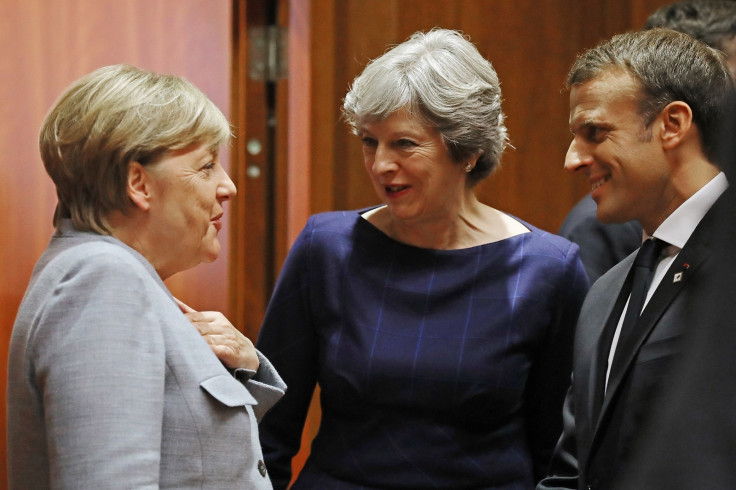Angela Merkel suggests EU is ready to begin post-Brexit trade talks
Theresa May has been pushing for talks to start focusing on trade to avoid a 'no deal' scenario.

Post-Brexit trade talks have been given a major boost after Angela Merkel suggested that enough progress had been made in early negotiations to move onto the next stage.
So far, negotiations over Britain's exit from the EU have moved at a slow rate, with deadlock over several issues including the "divorce bill."
Politicians in Westminster have become concerned that the slow progress could mean Britain walks away without a deal on the table, but the German Chancellor has signalled that discussions about post-Brexit trade could finally be on the cards.
The EU has so far refused to discuss trade until the initial issues, citizens rights, the Irish border and the divorce bill have been settled, but this could be set to change.
Speaking from a major EU conference in Brussels, Merkel said that there were "encouraging" signs from the talks between Brexit secretary David Davis and the EU chief negotiator Michel Barnier.
Merkel said that the progress meant that it would be possible to "take the work forward and then reach the start of the second phase in December".
The words will be seen as a major boost for ministers in Westminster with increasing speculation that the country could walk away without a deal.
The Foreign Secretary Boris Johnson was confident of a deal, but said that "we will come through it very well whatever happens."
Brexit discussions have been high on the agenda in the EU, but a number of other issues have started to take precedence for some European leaders.
The Spanish government is currently embroiled in a fierce independence row with Catalonia, while Merkel, arguably the most influential figure in Europe, fresh from a fourth general election victory - is still piecing together her next government.
Prime Minister Theresa May today (19 October) begins a two-day crunch Brussels summit with European leaders when the progress of Brexit talks will be assessed.
At the conclusion of the fifth round of talks between Britain and the EU, both sides agreed that progress had been made, but Michel Barnier, said that the ongoing debate over the divorce bill was "deeply disturbing."
Despite Britain voting to leave the EU in June 2016, little progress has been made in negotiations, with Brussels refusing to move onto trade until issues such as the Irish border, citizens' rights and the divorce settlement are finalised.
The activation of Article 50 in March this year means that there is just a year and a half left until Britain is set to leave in March 2019, a timescale that Theresa May has been adamant about sticking to.






















